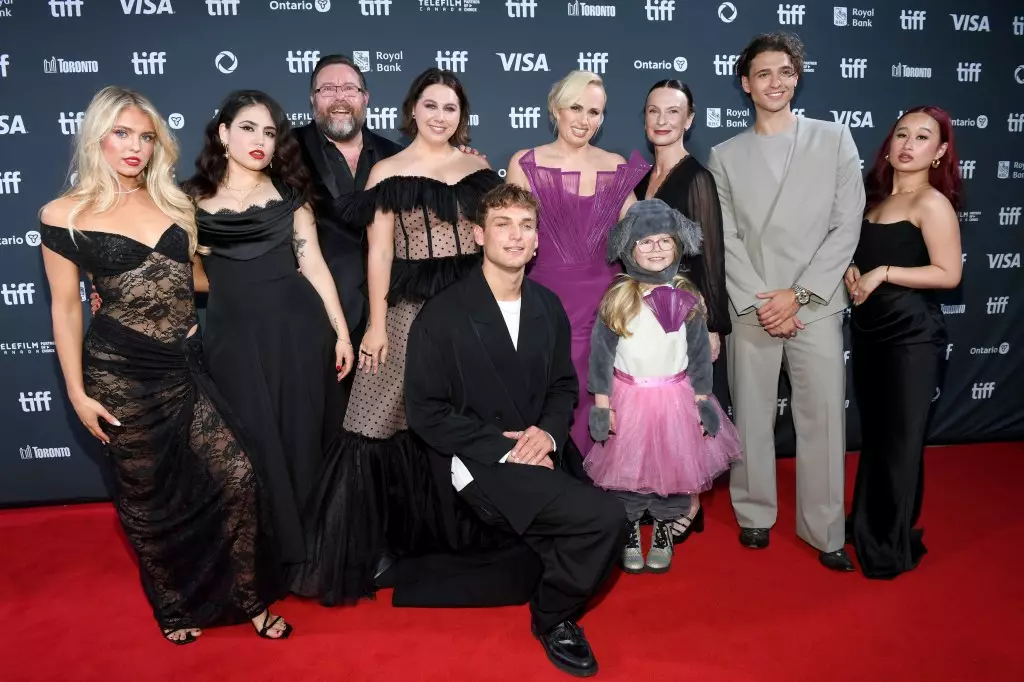The entertainment industry is often marked by tumultuous relationships and public scandals, but the legal battle currently unfolding around Rebel Wilson and her film *The Deb* has captured significant media attention. In a substantial response to claims made against her by the film’s producers, Wilson has embarked on a counterattack, alleging a portrait of malicious behavior among the production team. This case raises critical discussions about accountability and ethics in the film industry, as well as the effects of power dynamics on creative endeavors.
The saga began over the summer when Rebel Wilson expressed her discontent on social media about the film’s producers, particularly focusing on how they handled the premiere of *The Deb* at the Toronto Film Festival (TIFF). Her criticisms included accusations of financial mismanagement and inappropriate behavior toward the film’s lead actress, Charlotte MacInnes. It was a notable escalation that highlighted both personal and professional ramifications. Following these allegations, the producers retaliated with their own lawsuit against Wilson, seeking to paint her claims as false and defamatory.
What began as a disagreement escalated quickly into a full-blown legal war, reflecting the high stakes involved in the production of a major film. The producers, Amanda Ghost, Gregor Cameron, and Vince Holden, stand accused by Wilson of operating with a sense of entitlement that allowed them to act without regard for their peers. It’s a classic drama of power imbalances—one that reveals the grim realities behind the glitz of Hollywood.
On September 26, Wilson filed a counter-complaint with the Los Angeles Superior Court that comprises nine allegations of breach of contract. This 35-page legal document paints a stark picture of the producers’ actions as a series of “egregious and illicit behaviors,” alleging misconduct that ranges from theft and bullying to instances of sexual misconduct. The urgency of her response signals not just a desire for personal vindication, but a broader statement on the treatment of women in the film industry who often endure systemic intimidation and manipulation.
Wilson’s lawyer, Bryan Freedman, has made it clear that this trial is not merely about the actors involved, but indeed about all those who have faced similar harassment in silence. The production team purportedly employed an “Amanda Ghost strategy,” employing intimidation tactics to stifle dissenting voices among cast and crew. This highlights an unsettling trend where those in positions of authority escape accountability through coercive practices.
The very nature of Wilson’s counter-complaint underscores the precarious atmosphere within the film industry. It raises questions regarding creative integrity and the basic rights of artists. Wilson’s claim serves as a rallying cry for others who may fear exposing misconduct within their projects. Her stance reflects an increasing awareness of the need for accountability and can be seen as part of a larger cultural shift that seeks to dismantle the ingrained systems of power that have permitted abusive behaviors to thrive.
Freedman’s statement further accentuates the dichotomy between the two parties’ narratives. He hints at even greater revelations to come, suggesting that their current legal battle is merely surface-level. “Stay tuned, this is just the tip of the iceberg,” he notes, indicating that the full scope of misconduct could be far more extensive than currently known.
As we watch the unfolding drama, the implications of this legal battle transcend mere individual grievances. The conflict between Rebel Wilson and *The Deb* producers may stand as a pivotal moment. It not only illustrates the challenges faced by women in entertainment but also emphasizes the importance of solidarity among artists who have long endured similar fates. While the film industry often thrives on collaboration and creativity, the current friction exposes the fragile nature of such alliances when power is misused.
Through her counter-complaint, Wilson takes a bold stand, prompting the industry to re-evaluate how it handles its internal affairs. As legal proceedings continue, one can only hope that this case will serve as a catalyst for more profound discussions on ethical practices in Hollywood, potentially paving the way for systemic change that prioritizes the welfare of all involved in the artistic process.


Leave a Reply